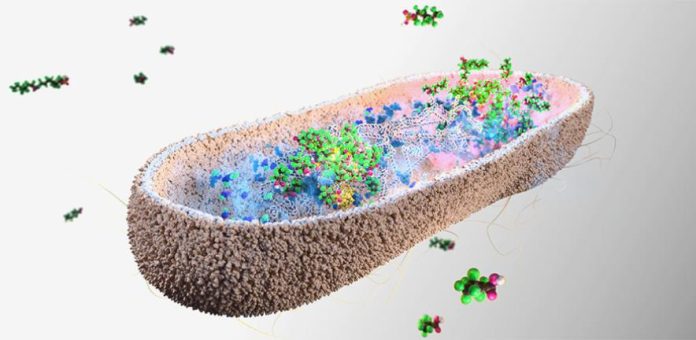
chemicals called PFAS, often referred to as “forever chemicals.”
These man-made substances are found in everyday items like non-stick pans, waterproof clothing, food packaging, and even makeup.
PFAS are popular because they resist heat, water, and grease—but they don’t break down easily.
Instead, they build up in the environment and in our bodies, potentially causing serious health issues over time.
Now, researchers at the University of Cambridge have found that certain bacteria naturally living in the human gut can absorb PFAS and help flush them out of the body.
These bacteria were shown to capture PFAS molecules and store them inside their cells. Interestingly, this seems to protect the bacteria themselves from the chemicals’ toxic effects.
To study this further, scientists introduced nine of these helpful bacterial species into the guts of mice, effectively making their microbiomes more human-like.
When the mice were fed PFAS, the bacteria quickly absorbed between 25% and 74% of the chemicals, which were then removed from the body through the mice’s waste.
Even as the mice were given higher levels of PFAS, the bacteria kept working efficiently, removing a consistent percentage of the chemicals.
While this hasn’t yet been tested in humans, it’s the first clear evidence that our gut microbes might help reduce the amount of PFAS in our bodies.
The research team now hopes to turn this discovery into probiotic supplements—similar to the ones people already take for digestion—that could help us naturally get rid of PFAS.
PFAS have been linked to a wide range of health problems, including reduced fertility, developmental delays in children, and higher risks of some cancers and heart disease.
Because they can stay in the body for years, finding a way to remove them is a major step forward. Some PFAS can leave the body in a few days, but others stick around for much longer, especially those with longer molecular structures.
Dr. Kiran Patil, the lead scientist on the study, said that given how common PFAS exposure is, it’s alarming that there aren’t more efforts to remove them from our bodies. Co-researcher Dr. Indra Roux added that while we haven’t figured out how to destroy PFAS, this new research offers hope that we can reduce their impact.
To bring this idea to life, the scientists have launched a startup called Cambiotics to develop PFAS-fighting probiotics.
While these products are still in development, experts suggest avoiding non-stick cookware and using quality water filters as simple steps to reduce PFAS exposure.
The research was published in Nature Microbiology and funded by several major UK health organizations.
Source: University of Cambridge.



